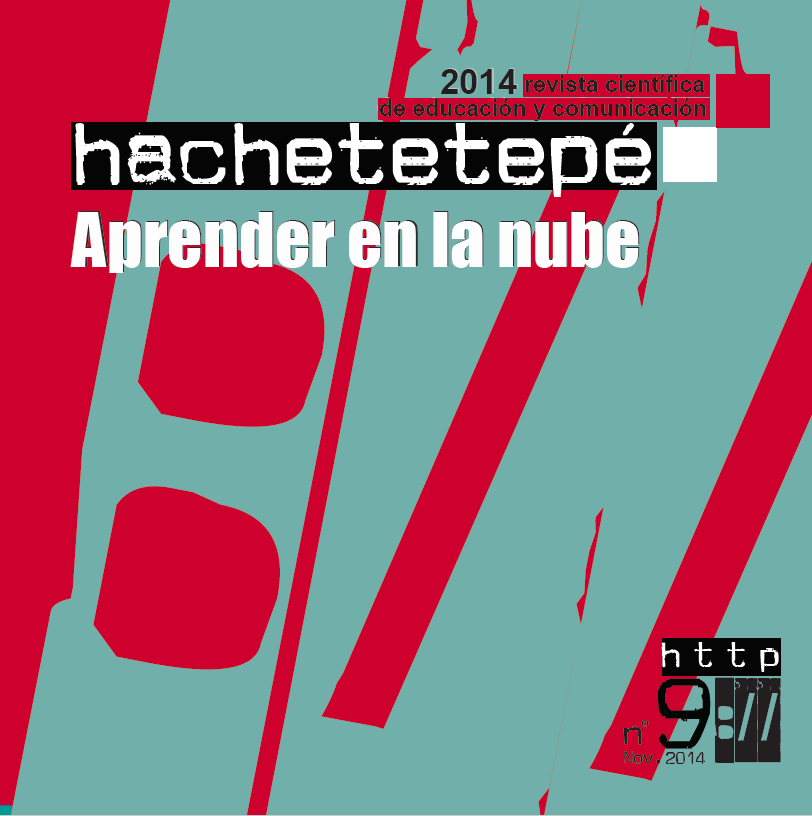Are they smarter or more stupid? Where is education?
Abstract
This paper is based on adults’ perplexity in front of the new contexts, situations and behaviours fostered by the development and application of digital information and communication technologies. To explore this issue, I start by discussing if the roles in the traditional relationships between children and parents, students and teachers are changing at a time when the first ones seem to know more than the latter. I argue this issue by noting how digital tools have not only transformed the world of information and communication but also the meaning and value of knowledge and learning. Then I put into question the apparently high technological knowledge of youth and introduce the fundamental role of educational institutions to meet the challenges of contemporary education. I get to the end by making some of these challenges explicit.
Keywords
Downloads
How to Cite
License

This work is licensed under a Creative Commons Attribution-NonCommercial-NoDerivatives 4.0 International License.
Those authors who have published with this journal, accept the following terms:
- They will retain their copyright and guarantee the journal the right to first publication of their work, which will simultaneously be subject to the Creative Commons Attribution License . They may be copied, used, disseminated, transmitted and publicly displayed, provided that the authorship, url, and magazine are cited, and are not used for commercial purposes. No derivative works are allowed.
- They may adopt other non-exclusive license agreements for the distribution of the published version of the work (e.g., deposit it in an institutional telematic archive or publish it in a monographic volume) provided that the initial publication in this journal is indicated.
- Disseminate your work through the Internet (e.g., in institutional telematic archives or on your website) once the manuscript is accepted, which may lead to interesting exchanges and increased citations of the published work. (See The effect of open access).
Hachetetepé. Scientific journal of education and communication does not charge a fee for the submission of manuscripts or for the publication of its articles.
References
Boschma, J. y Groe, I. (2006). Generación Einstein: más listos, más rápidos y más sociales. Comunicarse con los jóvenes del siglo XXI. Resumen disponible en: http://www.anele.org/jornadas_tecnicas/generatie_einsteinspaans_jeroen.pdf. (Consultada el 03 de noviembre de 2010).
Banks, J. A., Au, K. y otros (2007). Learning in and out of school in diverse environments. life-long, life-wide, life-deep. The LIFE Center for Multicultural Education. http://www.ibparticipation.org/pdf/LearningInDiverseEnvironments.pdf (Consultada el 24 de mayo de 2008).
Boyd, D. (2014). It’s Difficult. The social lives of networked teens. Yale University Press.
Carr, N. (2010). The Shallows: What the Internet Is Doing to Our Brains. New York/London: W. W. Norton & Company.
Carstens, A. y Beck, J. (2005). “Get Ready for the Gamer Generation”. TechTrends, 49 (3); 22-25.
Corea, C. y Lewkowicz, I. (2004). Pedagogía del aburrido. Escuelas destituidas, familias perplejas. Buenos Aires: Paidós.
Debray, R. (2001). Introducción a la mediología. Barcelona: Paidós.
Howe, N. y Strauss, W. (2000). Millennials Rising: The Next Great Generation. New York: Vintage Original.
Lanham, R. A. (2006). The Economics of Attention: Style and Substance in the Age of Information. The University of Chicago Press.
Lankshear, C. y Knobel, M. (2001). Do we have your attention? New literacies, digital technologies and the education of adolescents. In D. Alvermann (Ed.), New Literacies and Digital Technologies: A Focus on Adolescent Learners. New York: Peter Lang. http://www.geocities.com/c.lankshear/attention.html
Lenhart, A., Rainie, L. y otros (2001). Teenage Life Online: The Rise of Instant-Message Generation and the Internet's Impact on Friendship and Family Relationships. Washington, DC: Pew Internet & American Life Project.
Morin, E. (2000). La mente bien ordenada. Barcelona: Seix Barral.
Oblinger, D. y Oblinger, J. L. (Eds.). (2005). Educating the Net Generation. Washington, DC: Educause.
Prensky, M. (2001). “Digital Natives, Digital Immigrants”. On the Horizon, 9 (5); 1-6. http://www.marcprensky.com/writing/Prensky%20-%20Digital%20Natives,%20Digital%20Immigrants%20-%20Part1.pdf (Consultada el 20 de septiembre de 2010).
Sancho, J. M. (2009). “¿Qué educación, qué escuela para el futuro próximo?” Educatio Siglo XXI, 27 (2); 13-32. http://revistas.um.es/educatio/issue/view/7511/showToc
Sancho, J. M. y Alonso, C. (Coords.). (2012). La fugacidad de las políticas, la inercia de las prácticas La educación y las tecnologías de la información y la comunicación. Barcelona: Octaedro.
Sawyer, R. K. (2008). Optimising Learning Implications of Learning Sciences Research. Paris. OECD.
TIES (2012). Conclusiones del III Congreso Europeo de Tecnologías de la Información en la Educación y en la Sociedad: Una visión crítica. http://ties2012.eu/docs/TIES2012_conclusions_es.pdf
Veen, W. y Vrakking, B. (2006). Homo zappiens: Growing up in a digital age. Londres: Continuum International Publishing Group.






